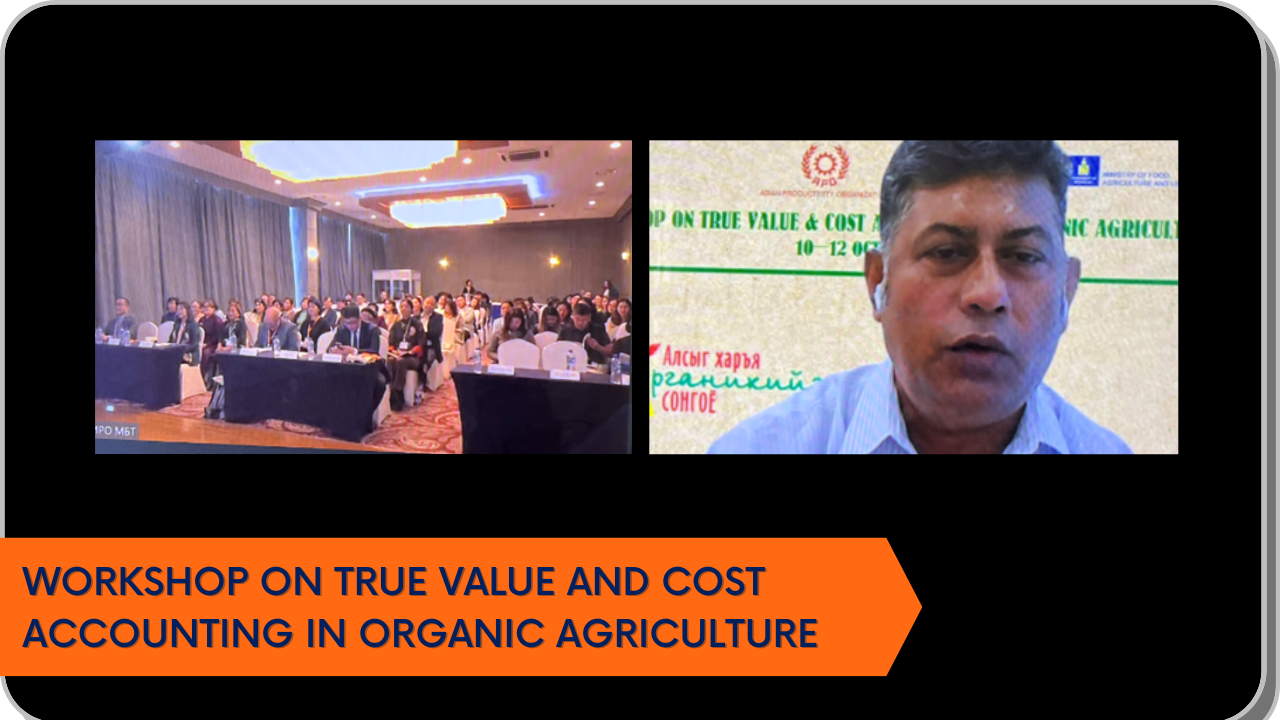
Select Page

True cost accounting (TCA) in organic agriculture comprehensively assesses the costs and benefits of organic farming practices. It is often argued that organic agriculture yields are lower than those of conventional agriculture, but those arguments ignore environmental and socioeconomic viewpoints, such as reduced pesticide use, enhanced biodiversity, and soil conservation. By employing TCA, true values and potential hidden costs are exposed, ensuring that organic producers, consumers, and policymakers can make well-informed decisions.
An online workshop on True Value and Cost Accounting in Organic Agriculture organized by the Mongolian Productivity Organization (MPO) and APO Secretariat was held 10–12 October. It provided an overview of the concept and current status of TCA in organic agriculture and presented cost–benefit analysis of organic farming, case studies, and TCA issues. Forty-three participants representing 11 member economies examined how organic agriculture can be compared with the performance of other production systems within APO economies. It was facilitated by three resource persons from Bangladesh, Mongolia, and the USA. The final day of the workshop involved attendance at the National Conference on Organic Agriculture organized by the Mongolian government and MPO, at which two of the APO resource persons gave online presentations.